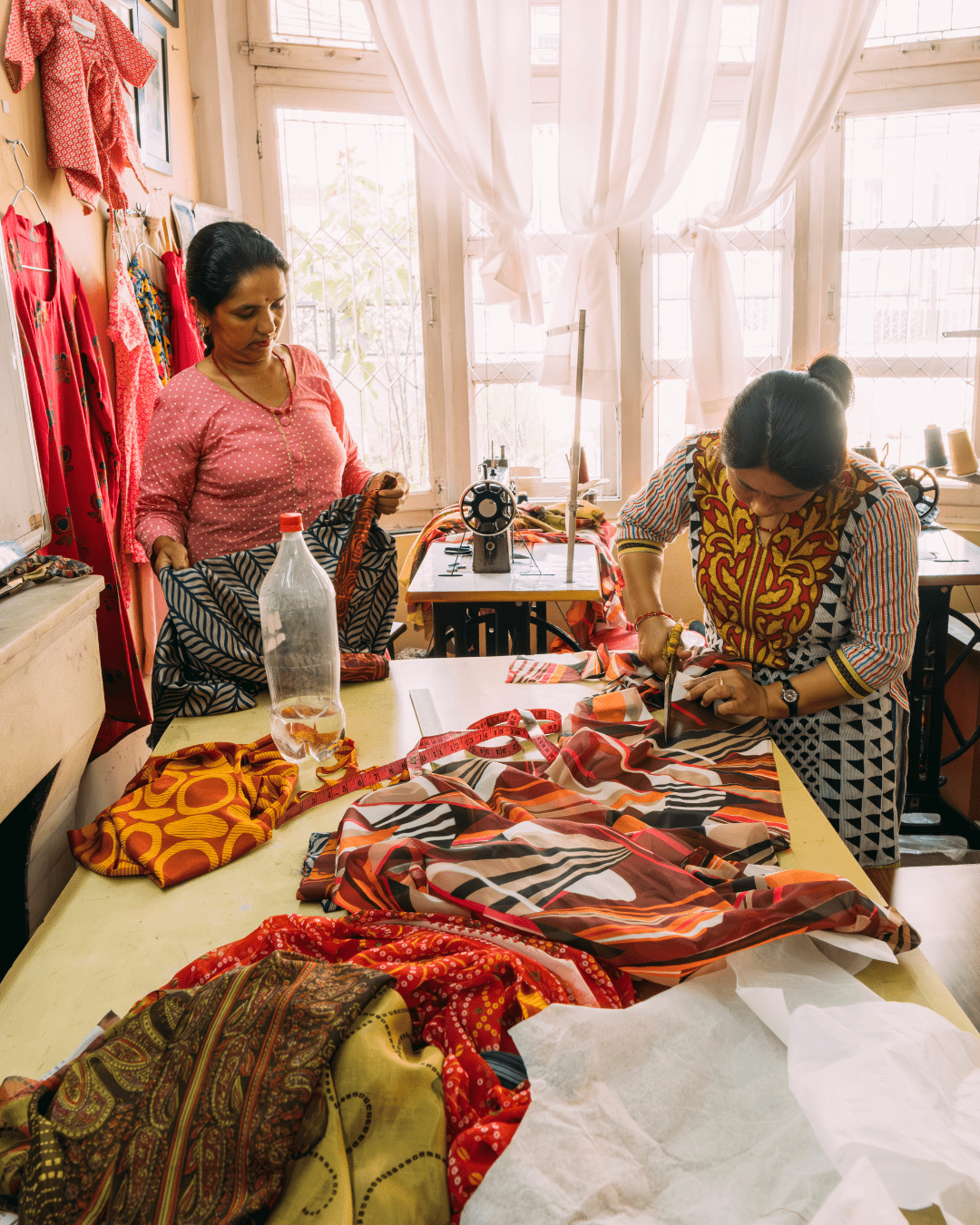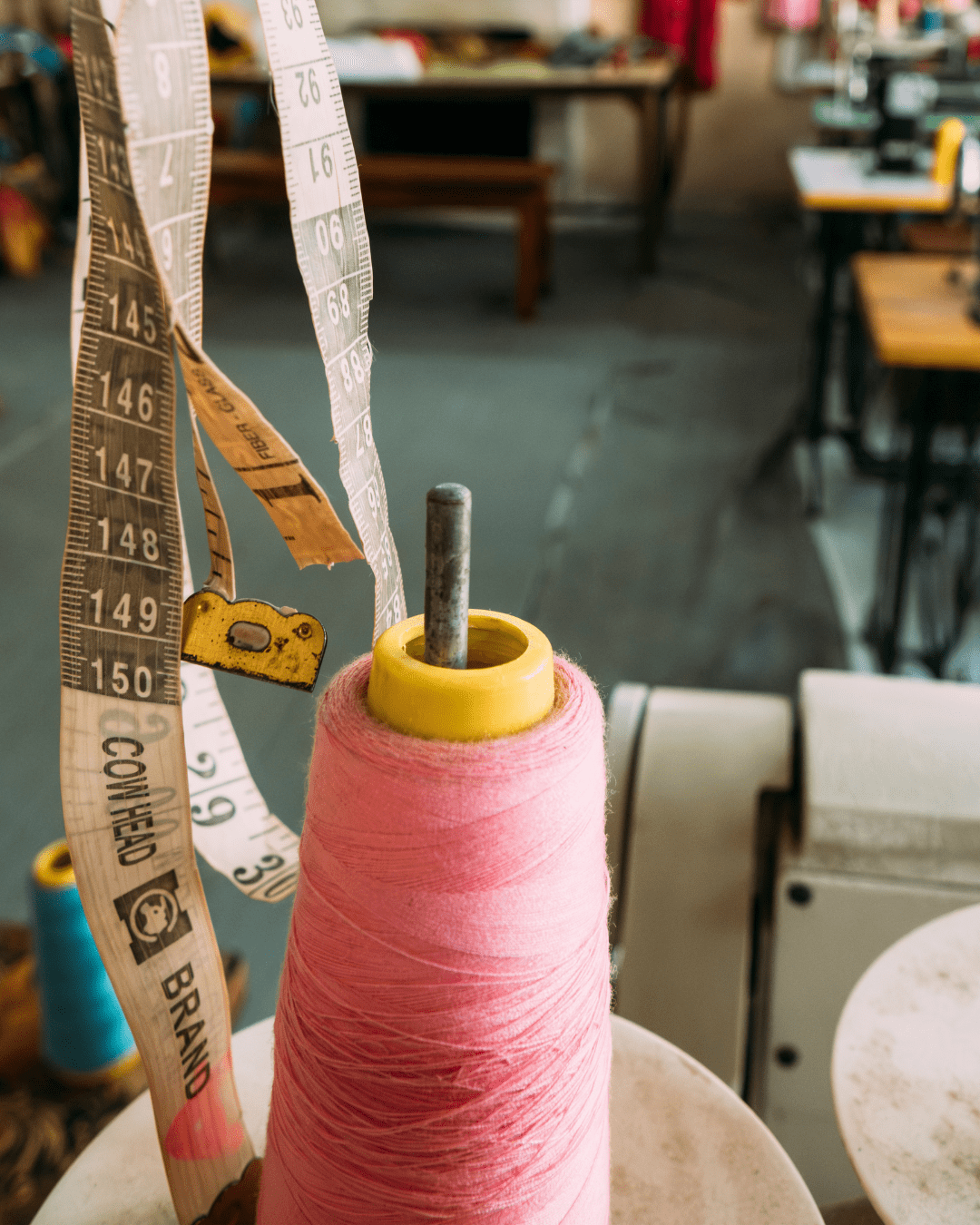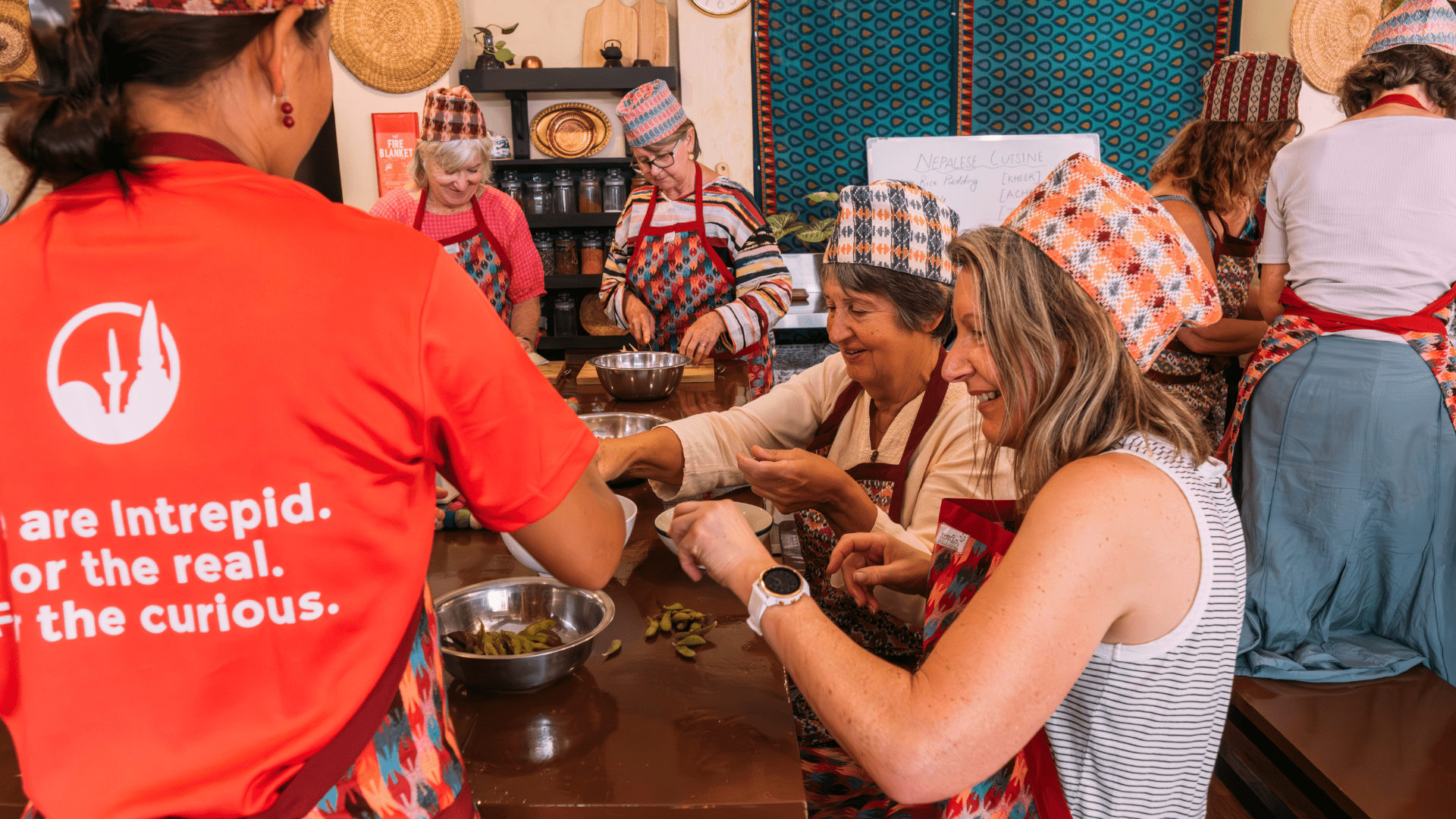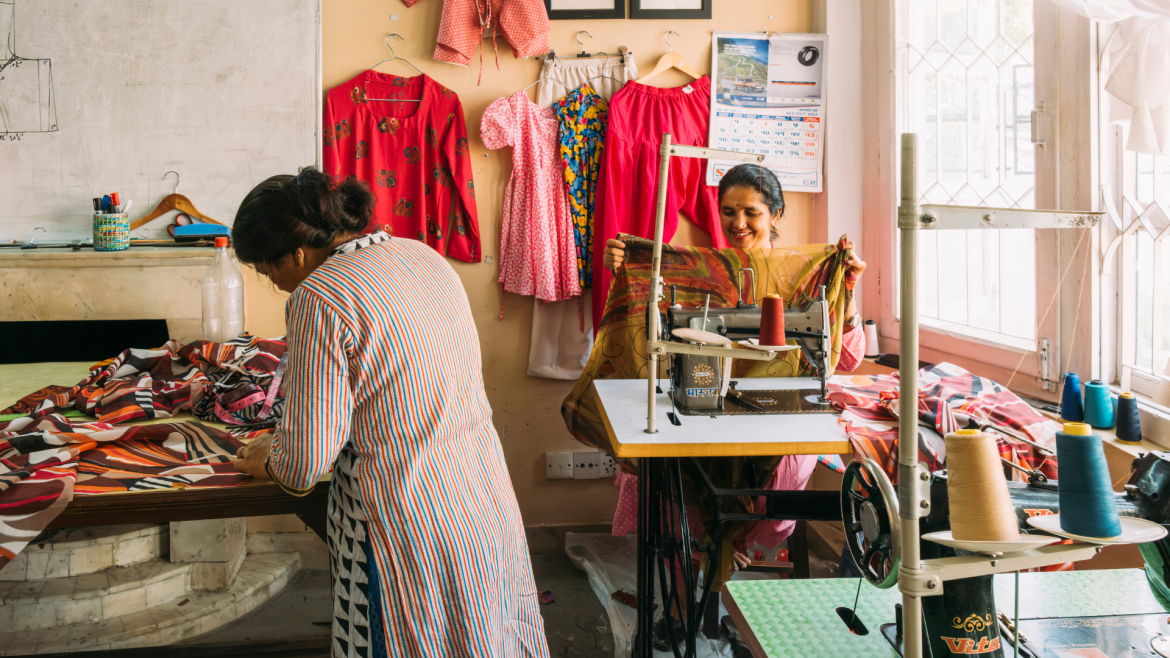Suryamaya Thapa was knitting in secret, hiding her craft skills from her husband and her disabilities from the outside world, when a last-minute decision changed the trajectory of her life.
Suryamaya lived in the bustling hub of Kathmandu but she preferred to stay indoors – when she went out, she was often mocked for her disabilities. So, she’d stay in, knitting while her husband was at work.
Naturally, when her neighbour suggested she accompany her to a free workshop that taught women how to sell clothes and other products they’d made, she was hesitant to join her.
But, with some encouragement, Suryamaya went along and met a young Australian, Steph Wollard, who’d arranged that training day. The other women who’d joined the workshop made clothes and other craft goods, just like Suryamaya. And they all tuned in to learn how to hone their skills and sell their goods for profit.
After meeting the women that day and hearing their stories, Steph wanted to provide more women in Nepal with skills training and education to generate an income and power their independence.
She went on to found Seven Women in 2006 and spent 17 years helping to educate and employ thousands, both in-person and with virtual training, before handing the organisation over to local leadership in 2023. While staying true to it’s original mission, Seven Women morphed into it’s next phase of philantrophy and became Sungabha Nepal.
Suryamaya started working with the organisation – making clothes and earning a steady income as an employee – shortly after its inception in 2006, and she’s still there today. But she’s hardly the same person she was when she joined almost two decades ago.
Finding strength amid material scraps
As we sit together on the floor of a tiny office above the sewing room at Sungabha Nepal – aromatic, freshly brewed chai in hand – Suryamaya quietly explains how different her outlook was before she came here. ‘I had a mindset that I cannot go out, or I cannot work,’ she says.
She paused momentarily before placing her warm mug on the small coffee table in front of her. ‘Most of the time, people around me also used to tease me, like, bully me. So I preferred to stay inside my home.’
She told me she would come to the complex, hidden in the heart of chaotic Kathmandu, every day. She’d focus on improving her knitting and learning new trades like sewing, crocheting and felt weaving before she stumbled on her passion for tailoring.


Like many other women who find hope in the shape of the quaint two-storey complex filled with sewing machines and craft goods, Suryamaya came to learn new skills. She didn’t expect that she’d also find confidence, independence and strength.
‘Because of my physical disability, my legs were not strong, my hands were not strong. So, my mind was also not strong. I used to feel very scared when people would come to talk to me,’ she confesses.
She smiles, ‘After getting involved here, I felt I got a kind of confidence. I had to face a lot of people. And because I had some skills in my hand, I was really empowered.’
Small steps, big impact
Nepal is still, for the most part, a patriarchal society so women are expected to stay home and complete household chores while the men go out to work.
Add physical disabilities to an already hefty list of barriers for women entering the workforce, and the income that grants them independence seems nearly impossible to attain.
‘I feel like I’m not disabled anymore because I’m treated well, like other able people.’
But Suryamaya was determined to build a new life free from stigmas and gender inequality.
‘I really want to encourage other women,’ she says. ‘Let’s not depend on anyone else and try to learn something so that you’ll be able to be independent and live the life that you want.’
Education and job opportunities can change the life of an individual. But, more than that, it helps change society’s perception of women and people living with disabilities.
‘I feel like I’m not disabled anymore because I’m treated well, like other able people.’
A taste of Nepali culture
Filled with inspiration after sitting down with Suryamaya, I made my way to the large kitchen out the back where the team run traditional cooking classes for travellers, another one of the ways Sungabha Nepal creates employment opportunities for women. I threw on one of their hand-made aprons and chef’s hats, each matching with maroon and navy patchwork, and did my best to follow along with their local cooking instructor.
In the same way the cozy craft workshop helps support women with skills training and employment, these cooking classes give local women a chance to share a piece of their culture with travellers while earning an income with their skills.

With a small group of just five other women on Intrepid’s Nepal Women’s Expedition, I chopped vegetables, added spices and stirred steaming pots of liquid until my heart was content. At the end of the class, we sat down together and enjoyed the traditional dahl bhat and sticky rice pudding we’d created under the guidance of our charismatic local teacher.
On my way out, I treated myself to a little hand-made retail therapy in the small gift shop in their courtyard. All of the pieces here – hand-made clothes, crocheted toys and sweet accessories – are made with love by the women working there, including Suryamaya. Now, that’s a souvenir with a difference.
You can visit Sungabha Nepal, join a cooking class for yourself and get your hands on some hand-made gifts on Intrepid’s Nepal: Women’s Expedition or Premium Nepal.
Note: Suryamaya and I swapped stories with the help of a translator who shared my questions with Suryamaya in Nepali and her responses with me in English. All images by Yvette Scott.




